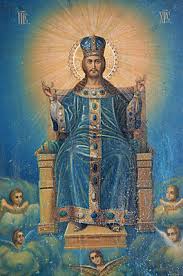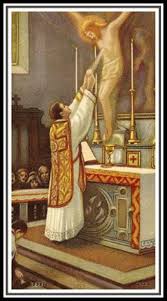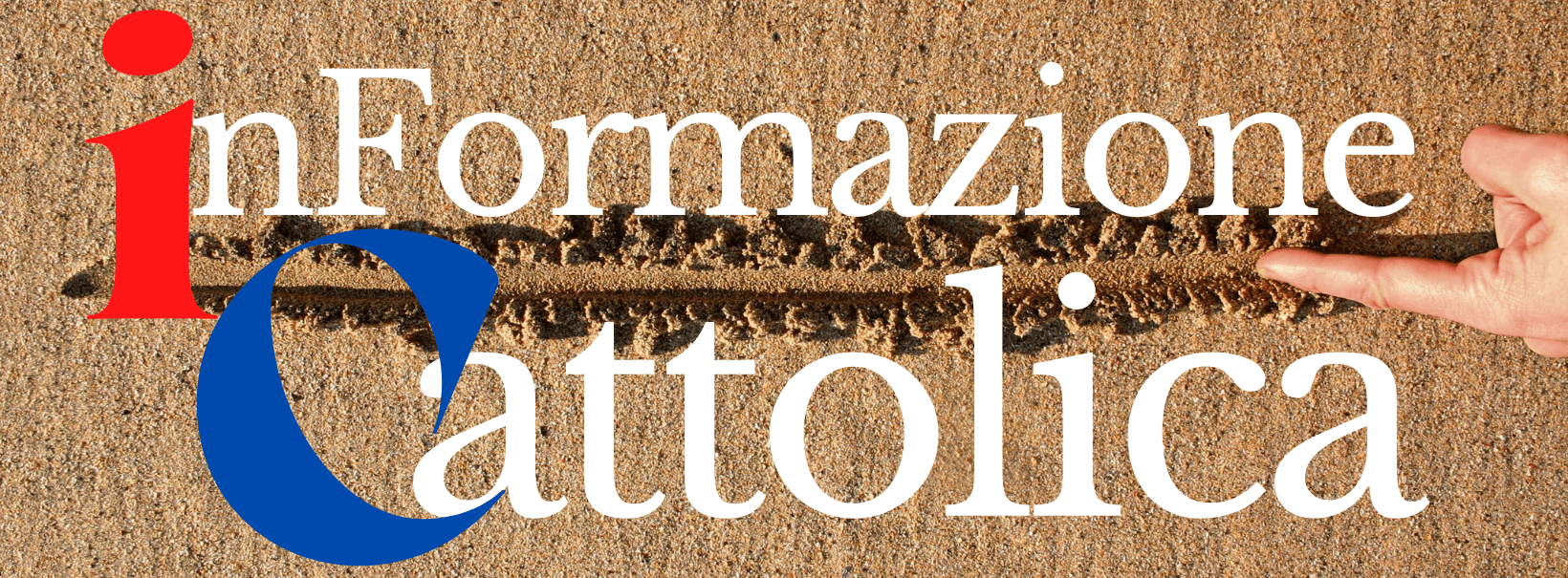Cardinale Van Thuan
newsletter n.458 25 novembre 2013
The liturgical year ends with the Feast of Christ the King, which this year falls on Sunday, 24 November 2013. On this occasion the Feast of Christ the King takes on additional sense and significance insofar as it marks the conclusion of the Year of Faith inaugurated by Benedict XVI on 11 October 2012 and coming to an end on that Sunday, 24 November 2013.
First of all it would be useful to specify that the lordship or kingship of Christ is a teaching of the Church contained in the Catechism of the Catholic Church. This is a truth of the doctrine of the faith, as we read in the words of Pious XI, the pope who created the feast: “It is a dogma of faith that Jesus Christ was given to man, not only as our Redeemer, but also as a law-giver, to whom obedience is due” (Quas Primas).
Paragraph 2105 of the Catechism reads as follows: “The duty of offering God genuine worship concerns man both individually and socially. This is ‘the traditional Catholic teaching on the moral duty of individuals and societies toward the true religion and the one Church of Christ’ (Dignitatis humanae, 1.) By constantly evangelizing men, the Church works toward enabling them ‘to infuse the Christian spirit into the mentality and mores, laws and structures of the communities in which [they] live’(Apostolicam actuositatem, 13.)
The social duty of Christians is to respect and awaken in each man the love of the true and the good. It requires them to ‘make known the worship of the one true religion which subsists in the Catholic and apostolic Church’ (Dignitatis humanae, 1). Christians are called to be the light of the world. Thus, the Church shows forth the kingship of Christ over all creation and in particular over human societies.
The Kingdom of Christ Himself and His Kingship became manifest in creation (“Through him all things were made”, says the Gospel according to St. John) and in the resurrection. It therefore also has a messianic and eschatological aspect: the kingship of Crist will come to be in a definitive manner with His Return when He will recapitulate all things in Himself
Many people feel that the kingship of Christ is a doctrine belonging to times past and it is ordinarily looked upon as a pre-Conciliar doctrine now outdated. As we have seen above, however, it is a doctrine clearly enunciated in the Catechism, which John Paul II had published on 11 October 1982 (note well the date!) as a consequence and fruit of Vatican Council II. Moreover, there are numerous citations from some important Council documents in the text of paragraph 2015 we have just read. Therefore, the doctrine of Christ the King cannot be separated from the
Council.
The creation of the feast with Pious XI
The Feast of Christ the King was created by the encyclical Quas Primas of Pious XI promulgated on 11 December 1925 at the end of the Holy Year. After having recalled that the Old Testament already speaks in prophetic terms about the kingship of Christ, the Holy Father recalls that Christ personally proclaimed Himself as such, for example, in His reply to the question asked of Him by Pilate in this sense, and that the Gospels repeatedly proclaim Him as king.
Pious XI then continues by saying Christ is not only King by right of nature, that is to say insofar as God, but also by right of ‘achievement’, that is to say by virtue of the Redemption: “Would that they who forget what they have cost their Savior might recall the words: “You were not redeemed with corruptible things, but with the precious blood of Christ, as of a lamb unspotted and undefiled”
Pious XI teaches that the kingship of Christ is expressed in all three powers: legislative (“Not only do the Gospels tell us that he made laws, but they present him to us in the act of making them. Those who keep them show their love for their Divine Master, and he promises that they shall remain in his love”); judiciary (“Nor does the Father judge anyone, but he has given all judgment to his Son”, Jn 5:22); executive 🙁 “All must obey his commands; none may escape them or the sanctions he has imposed”).
Even though the authority of Christ primarily pertains to the spiritual order, its reality likewise encompasses the social order: “It would be a grave error, on the other hand, to say that Christ has no authority whatever in civil affairs, since, by virtue of the absolute empire over all creatures committed to him by the Father, all things are in his power”. Not only do individual persons owe Him obedience, but also societies, because “In him is the salvation of the individual, in him is the salvation of society If, therefore, the rulers of nations wish to preserve their authority, to promote and increase the prosperity of their countries, they will not neglect the public duty of reverence and obedience to the rule of Christ.”
An outdated doctrine?
The citations we have just seen do not seem to take into consideration the so-called “autonomy of earthly realities” and give the impression of saying that politics depends on the Christian religion. This is the reason why many people deem this to be an outdated doctrine in light of the democratic and pluralistic surroundings in which we live. The first thing to be said in this regard is that the recent popes, who certainly did not condemn democracy like their predecessors of the XIX century, never ceased to proclaim the lordship of Christ in the social and political realm
A most eloquent example of this can be seen in the famous invitation on the part of John Paul II to open the doors to Christ, an invitation made in his first homily as pope on Sunday 22 October 1978: “Do not be afraid. Open wide the doors for Christ. To his saving power open the boundaries of States, economic and political systems, the vast fields of culture, civilization and development. Do not be afraid. Christ knows ‘what is in man’. He alone knows it”. Here the pope does not say to open only the doors of hearts and souls to Christ, but also the doors of political systems. It is therefore a matter of a social kingship as well
Benedict XVI repeated this countless times: “A God with no power is a contradiction in terms”; “Far from God, man is ill at ease and infirm”; “The humanism that excludes God is inhuman humanism”; “We must not lose sight of God if we do not want human dignity to disappear”; “With the dimming of the light coming from God, humanity suffers a lack of orientation, whose destructive effects are becoming increasingly manifest”. Benedict XVI as well proclaimed the kingship of Christ: “There is no kingdom of earthly issues that can be removed from the Creator and His dominion”.
The Kingship of Christ and democracy
I pointed out above that democracy could lead people to think in terms of the absurdity of the kingship of Christ over temporal affairs; that is to say not over the conscience of believers, but also over the organization of society and politics. Conversely, the Church affirms that said kingship remains, with the understanding of being projected no longer through ‘Christian’ institutions as in the past, but through the active involvement of the faithful in respect for the freedom of conscience.
This kingship no longer passes through a confessional state because that would curtail the freedom of conscience that Christians were the first to claim from the authorities of the Roman Empire, and it would be very strange if they were to prohibit it to others. At a certain point modernity wanted not only to surpass the confessional state, but also throw God out of the world and relegate Him to the sphere of individual conscience. In all truth, modernity seized the occasion of the refusal of the confessional state to do just that. It has proved to be successful as far as its first pursuit is concerned, but it must not succeed with the second one, because that would be tantamount to its own condemnation.
Therefore, reiterating the kingship of Christ over society and not only over consciences does not just mean thinking society and politics cannot do without Him. As we read in Caritas in Veritate: “Christianity is an element not only useful but indispensable for the construction of a good society”, whereby reiterated is the kingship of Christ in the social order.
A very important way to respect the kingship of Christ in democracy is to respect the principles of natural moral law in laws and policies: life, the family, procreation, the education of children, widespread private property, work, public morality. In other words, respect the laws of Creation, which come from the Creator and embody indications about how we must live if we want to continue being human persons. If society and politics do this, they will soon realize that God must have a place in the world, because otherwise moral standards and norms pass away into oblivion as well, and, as Dostoevskij said, everything becomes permissible





